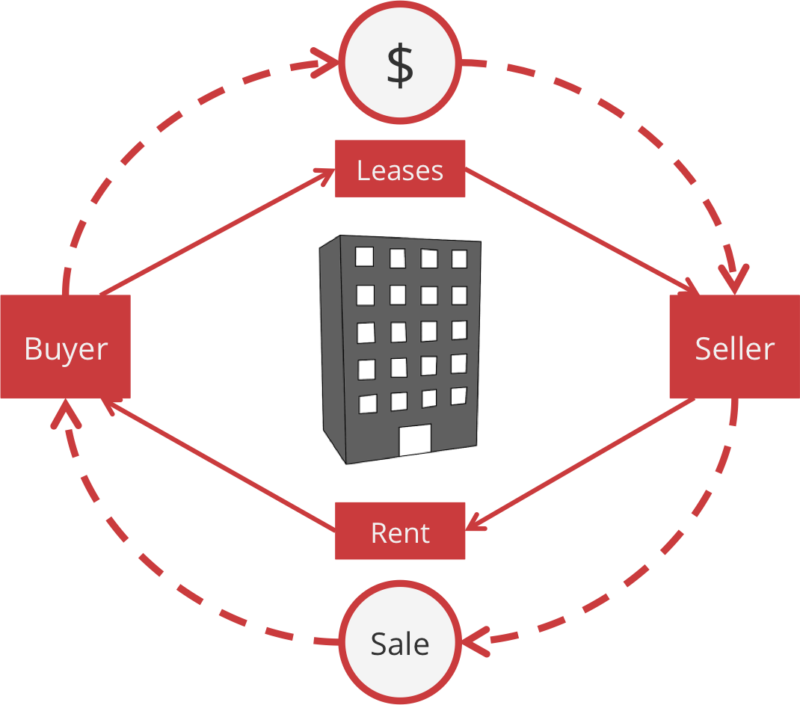What/Why/How to Conduct a Sale & Leaseback by Adam Abushagur
Published By:
Adam Abushagur
Senior Associate
Managing Director, TAG Industrial
National Office & Industrial Properties Group
5001 Spring Valley Road #100W
Dallas, TX 75244
Adam.Abushagur@marcusmillichap.com
Tel: (972) 755-5223
Fax: (972) 755-5210
What is a Sale/Leaseback?
A sale/leaseback refers to when an owner-user of real estate (tenant occupies the building they own) sells the real estate and simultaneously enters into a pre-negotiated lease, at close of escrow.
The sale price of the real estate is determined by the following three factors:
- Lease Term the Tenant is Willing to Enter Into
- Lease Rate the Tenant is Willing to Assume
- Current Submarket Demand and Growth
The longer the term the tenant is willing to enter, the higher the rate the tenant is willing to assume (within reason) and the more the submarket is sought-after by investors, the higher the sale price of the real estate.
Why Conduct a Sale/Leaseback?
The most common question from clients is “why would I sell my most valuable real asset and in return pay somebody else rent?” and the quick answer from me is, “for your specific situation, I don’t know yet, but I can promise we’ll find out”. Every client’s situation is different and through our client-centric and advisory approach, we help clients realize if it does or does not make sense.
Below are some of the main reasons sale/leasebacks make sense.
- Financing Growth
- Redeploying capital to expand business through acquisition of competitors, additional locations and/or equipment.
- A specific example of this was the sale/leaseback we conducted for the Spirit International headquarters in Carrollton. The client was looking to grow their footprint by acquiring a factory in China for a new LED product, which in return cut down costs and expenses, and grew margins.
- Ninety-five percent of the time, our clients’ return on equity within the business is much higher than the real estate. Typically, we are transacting industrial property in the 7 percent to 9 percent cap range (return on investment); whereas margins for clients typically fall in the 12 percent to 18 percent range.
- Redeploying capital to expand business through acquisition of competitors, additional locations and/or equipment.
- Tax Benefits
- As a tenant, the company is able to write off 100 percent of their lease payment as an expense item. As a landlord, you are only able to deduct interest and depreciation expenses.
- Extracting More Value
- You’re able to add more value to the real estate with a lease in place. Investors are now paying for the income and real estate, rather than just the shell value of the real estate. This significantly increases the sale price of the asset.
- This is evident in multiple industrial warehouse transactions we have assisted clients in selling at more than $100/ft locally in Dallas/Fort Worth.
- Unlike traditional refinancing, you are able to extract 100 percent of the property value rather than just 60 percent to 70 percent of the property value with a bank.
- You’re able to add more value to the real estate with a lease in place. Investors are now paying for the income and real estate, rather than just the shell value of the real estate. This significantly increases the sale price of the asset.
- No Financial Covenants
- Clients can capitalize on more freedom in their day-to-day operations and goals. Banks and lenders often require multiple financial covenants when borrowing money.
- Paying Down Debt
- An influx of capital through a sale/leaseback can be a great way to pay down debt and improve overall balance sheets.
- Exit Strategy for Business
- In multiple cases, we have advised clients while they were in the process of selling their business.
- In most cases, equity groups looking to acquire the business and real estate in the same transaction will always discount the real estate.
- By conducting a sale/leaseback, you enhance the value of the real estate with a lease in place and separate the two transactions of the business and real property, in return yielding you more capital.
- In multiple cases, we have advised clients while they were in the process of selling their business.
How to Get Started?
First and most importantly, we need to make contact. Our passion is bridging our clients’ objectives of today with their goals of the future. That said, throughout the initial contact we will learn more about your current objectives and long-term goals. Whether you decide to conduct a sale/leaseback, hold the property or absolutely do nothing, we will make it our priority to reach that objective.
